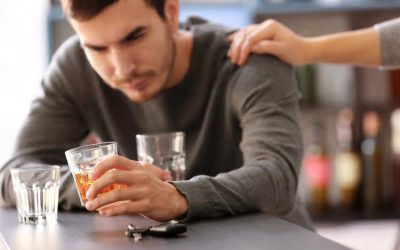Recovery Games For Groups Group Therapy And Recovery CA
Incorporating these printable activities into therapy sessions, support groups, or even daily routines makes recovery less daunting and more empowering. These tools help individuals reclaim control over their emotions, build resilience and foster a supportive community—all key factors in achieving long-term recovery success. Since children can be exposed to alcohol and drugs at an early age, this game is especially for kids from ages 10 through 16. The Drugs and Alcohol Game teaches players about situations that can lead to drug or alcohol use. With discussion and role-playing, the kids learn how to cope with various hard scenarios that can happen to them in real life. Creative outlets such as art or poetry provide avenues for expression and healing.
Discuss Triggers

Helping skills, theory overviews, treatment planning, and techniques. For a player to win the game(s), he must first fulfill all of their life areas. However, the game continues until everyone reaches the end, so nobody loses.
Top 30 Substance Abuse Group Activities
With modern technology, support groups can now be held in person, online, or through a hybrid approach (with some attendees in person and some online). If your meeting is on Zoom or another platform, or if you have some attendees phoning in or joining via Zoom, you may want to avoid activities that require a lot of visuals. Fortunately, there are many activities that can easily accommodate most group settings. Some group members may be ambivalent about participating in activities because they struggle with commitment to recovery. Facilitators can create a nonjudgmental space where participants feel comfortable discussing doubts, allowing for open expression while encouraging self-reflection.
Can Group Activities Replace Individual Therapy in Substance Abuse Recovery?
Each spot on the board instructs players to either talk about a situation or Halfway house feel or draw one of them. The Rational Reminder cards give players a bit of advice while the Voice cards encourage players to talk more about their recovery process or relapses. It helps the players find the best way to their plan of recovery by going through a path of real-life events. From ‘bad day’ spots to ‘strength’ spots, each space on the gameboard has a real-life situation that many people face in addiction recovery. By incorporating these topics into group therapy sessions, participants can develop a comprehensive toolkit for recovery, supported by the camaraderie and shared experiences of their peers. Regular assessment of group progress and the effectiveness of group activities is essential for positive outcomes.
Are Substance Abuse Group Activities Suitable for Everyone, Regardless of Their Recovery Stage?
A template for tracking attendance, cases discussed, and any other group topics. A 2-page handout that describes seven uncommon grief experiences, such as delayed or disenfranchised grief. A list with links to online grief support groups, forums, and communities. A to-do list of kind deeds with blank spaces to write in your own ideas for spreading kindness. A 2-page handout with journal prompts for recovery, based on material from The Sober Survival Guide (created with the author’s permission).
- Ask participants to create visual boards showcasing their recovery goals and aspirations to ignite stimulating conversations and reflection.
- Thought replacement or cognitive restructuring is one of the fundamentals of CBT.
There is a downloadable PDF version below as well as a direct link to this Jeopardy game online on “Jeopardylabs.” For those who prefer the written word, journaling workshops offer a safe space to pour out thoughts and feelings onto paper. Guided writing exercises help participants explore their inner landscape, often uncovering insights that might otherwise remain buried. Games are great, but as everyone knows, addiction isn’t a game, so if you’re ready to reclaim your life, contact Steps Recovery Center and let us help you today.
A physician with over 10 years of clinical experience, she leads AI-driven care automation initiatives at S10.AI to streamline healthcare delivery. Ask group members to decorate the outside of their bags with words and images that represent the self they show to the world. Decorate the inside of the bag with words and images that represent the hidden qualities that few people get to see. Ask group members to introduce themselves by sharing three weird, funny, or interesting things about themselves as an “ice breaker” at your meeting. CARF International accreditation demonstrates a program’s quality, transparency, and commitment to the satisfaction of the persons served. CARF International is an independent, nonprofit accreditor of health and human services.
- Connecting with nature can be deeply healing, and this experiential activity for group therapy combines physical activity with mindfulness.
- A 1-page worksheet for identifying things that promote addiction and ways to get rid of or avoid these things.
- A comprehensive list of 12-step and other support groups, such as AA, NA, SMART Recovery, Dual Recovery Anonymous, NAMI, etc.
- Ask the group to visualize themselves lost at sea in a storm at night.
- While traditional talk therapy plays a vital role, experiential activities for group therapy offer a dynamic way to engage participants on a deeper, emotional level.
- Through the group dynamic, clients foster hope and examine core issues that exacerbate their addictive disorders.
Aleve Addiction: Risks, Signs, and Recovery Options
This exercise not only builds empathy but also helps individuals recognize the universal themes in their unique stories. The cards let those around you describe your good qualities and strengths by giving you the cards they think you deserve. This self-esteem building activity encourages each player to consider how others see them and to provide them with an idea of how they interact with others. This game is an excellent way to increase positivity in those who are struggling. During each turn, a player will draw one card from the category they land on and follow the card’s instructions. Some of them are actions, while others are feeling or thought exercises.
A guided meditation session at the start of a substance abuse group activity session can create a calming atmosphere for participants. So let’s raise a (non-alcoholic) toast to the power of community, creativity, and good old-fashioned fun in the journey of recovery. After all, substance abuse group activities a life reclaimed from addiction should be one worth living – and enjoying – to the fullest. Recovery isn’t just about staying sober – it’s about building a life worth staying sober for.

Think of emotional problems you face, such as depression or a bad temper. Then write about or discuss how these emotions might serve you, such as the way your depression forces you to slow down and rest when you’re overwhelmed. In group CBT therapy, patients with similar conditions are placed in one group. A therapist works with the clients to identify how their negative thoughts affect emotions and behaviors. A therapist aims to reshape your thoughts towards a more positive perspective for better behavioral outcomes. This peace will help you stay motivated towards your recovery journey.
By including fun, engaging activities in group sessions, facilitators help participants experience recovery as a rewarding process that expands resilience and supports personal growth. When facilitators create a safe, healing environment, individuals are more likely to stay motivated, connected, and committed to their journey toward https://ecosoberhouse.com/ a substance-free life. There are several substance abuse therapy activities that can benefit the recovery process. Those in treatment for addiction can participate in fun games and other activities with their peers that center around addiction recovery. These games can improve self-awareness, build confidence, and help participants gain new interests and hobbies.
Collaborative art projects foster creativity and emotional expression. Mindfulness exercises like deep breathing or guided visualization promote relaxation and stress management. These innovative techniques encourage behavioral change and self-development within the group setting, supporting each participant’s journey toward recovery. These games, tailored for different stages of recovery, are practical tools in therapeutic groups and substance abuse recovery programs. The first 90 days of sobriety mark a critical period in your recovery journey.

